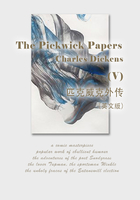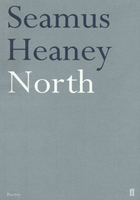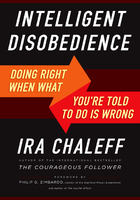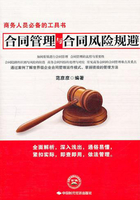It was the afternoon of an April day in that same year, and the sky was blue above, with little sailing white clouds catching the pleasant sunlight. The earth in that northern country had scarcely yet put on her robe of green. The few trees grew near brooks running down from the moors and the higher ground. The air was full of pleasant sounds prophesying of the coming summer. The rush, and murmur, and tinkle of the hidden watercourses; the song of the lark poised high up in the sunny air; the bleat of the lambs calling to their mothers—everything inanimate was full of hope and gladness.
For the first time for a mournful month the front door of Haytersbank Farm was open; the warm spring air might enter, and displace the sad dark gloom, if it could. There was a newly-lighted fire in the unused grate; and Kester was in the kitchen, with his clogs off his feet, so as not to dirty the spotless floor, stirring here and there, and trying in his awkward way to make things look home-like and cheerful. He had brought in some wild daffodils which he had been to seek in the dawn, and he placed them in a jug on the dresser. Dolly Reid, the woman who had come to help Sylvia during her mother's illness a year ago, was attending to something in the back-kitchen, making a noise among the milk-cans, and singing a ballad to herself as she worked; yet every now and then she checked herself in her singing, as if a sudden recollection came upon her that this was neither the time nor the place for songs. Once or twice she took up the funeral psalm which is sung by the bearers of the body in that country—
Our God, our help in ages past.
But it was of no use: the pleasant April weather out of doors, and perhaps the natural spring in the body, disposed her nature to cheerfulness, and insensibly she returned to her old ditty.
Kester was turning over many things in his rude honest mind as he stood there, giving his finishing touches every now and then to the aspect of the house-place, in preparation for the return of the widow and daughter of his old master.
It was a month and more since they had left home; more than a fortnight since Kester, with three halfpence in his pocket, had set out after his day's work to go to York—to walk all night long, and to wish Daniel Robson his last farewell.
Daniel had tried to keep up and had brought out one or two familiar, thread-bare, well-worn jokes, such as he had made Kester chuckle over many a time and oft, when the two had been together afield or in the shippen at the home which he should never more see. But no 'Old Grouse in the gunroom' could make Kester smile, or do anything except groan in but a heart-broken sort of fashion, and presently the talk had become more suitable to the occasion, Daniel being up to the last the more composed of the two; for Kester, when turned out of the condemned cell, fairly broke down into the heavy sobbing he had never thought to sob again on earth. He had left Bell and Sylvia in their lodging at York, under Philip's care; he dared not go to see them; he could not trust himself; he had sent them his duty, and bade Philip tell Sylvia that the game-hen had brought out fifteen chickens at a hatch.
Yet although Kester sent this message through Philip—although he saw and recognized all that Philip was doing in their behalf, in the behalf of Daniel Robson, the condemned felon, his honoured master—he liked Hepburn not a whit better than he had done before all this sorrow had come upon them.
Philip had, perhaps, shown a want of tact in his conduct to Kester. Acute with passionate keenness in one direction, he had a sort of dull straightforwardness in all others. For instance, he had returned Kester the money which the latter had so gladly advanced towards the expenses incurred in defending Daniel. Now the money which Philip gave him back was part of an advance which Foster Brothers had made on Philip's own account. Philip had thought that it was hard on Kester to lose his savings in a hopeless cause, and had made a point of repaying the old man; but Kester would far rather have felt that the earnings of the sweat of his brow had gone in the attempt to save his master's life than have had twice ten times as many golden guineas.
Moreover, it seemed to take his action in lending his hoard out of the sphere of love, and make it but a leaden common loan, when it was Philip who brought him the sum, not Sylvia, into whose hands he had given it.
With these feelings Kester felt his heart shut up as he saw the long-watched-for two coming down the little path with a third person; with Philip holding up the failing steps of poor Bell Robson, as, loaded with her heavy mourning, and feeble from the illness which had detained her in York ever since the day of her husband's execution, she came faltering back to her desolate home. Sylvia was also occupied in attending to her mother; one or twice, when they paused a little, she and Philip spoke, in the familiar way in which there is no coyness nor reserve. Kester caught up his clogs, and went quickly out through the back-kitchen into the farm-yard, not staying to greet them, as he had meant to do; and yet it was dull-sighted of him not to have perceived that whatever might be the relations between Philip and Sylvia, he was sure to have accompanied them home; for, alas! he was the only male protector of their blood remaining in the world. Poor Kester, who would fain have taken that office upon himself, chose to esteem himself cast off, and went heavily about the farmyard, knowing that he ought to go in and bid such poor welcome as he had to offer, yet feeling too much to like to show himself before Philip.
It was long, too, before any one had leisure to come and seek him. Bell's mind had flashed up for a time, till the fatal day, only to be reduced by her subsequent illness into complete and hopeless childishness. It was all Philip and Sylvia could do to manage her in the first excitement of returning home; her restless inquiry for him who would never more be present in the familiar scene, her feverish weariness and uneasiness, all required tender soothing and most patient endurance of her refusals to be satisfied with what they said or did.
At length she took some food, and, refreshed by it, and warmed by the fire, she sank asleep in her chair. Then Philip would fain have spoken with Sylvia before the hour came at which he must return to Monkshaven, but she eluded him, and went in search of Kester, whose presence she had missed.
She had guessed some of the causes which kept him from greeting them on their first return. But it was not as if she had shaped these causes into the definite form of words. It is astonishing to look back and find how differently constituted were the minds of most people fifty or sixty years ago; they felt, they understood, without going through reasoning or analytic processes, and if this was the case among the more educated people, of course it was still more so in the class to which Sylvia belonged. She knew by some sort of intuition that if Philip accompanied them home (as, indeed, under the circumstances, was so natural as to be almost unavoidable), the old servant and friend of the family would absent himself; and so she slipped away at the first possible moment to go in search of him. There he was in the farm-yard, leaning over the gate that opened into the home-field, apparently watching the poultry that scratched and pecked at the new-springing grass with the utmost relish. A little farther off were the ewes with their new-dropped lambs, beyond that the great old thorn-tree with its round fresh clusters of buds, again beyond that there was a glimpse of the vast sunny rippling sea; but Sylvia knew well that Kester was looking at none of these things. She went up to him and touched his arm. He started from his reverie, and turned round upon her with his dim eyes full of unshed tears. When he saw her black dress, her deep mourning, he had hard work to keep from breaking out, but by dint of a good brush of his eyes with the back of his hand, and a moment's pause, he could look at her again with tolerable calmness.
'Why, Kester: why didst niver come to speak to us?' said Sylvia, finding it necessary to be cheerful if she could.
'A dun know; niver ax me. A say, they'n gi'en Dick Simpson' (whose evidence had been all material against poor Daniel Robson at the trial) 'a' t' rotten eggs and fou' things they could o' Saturday, they did,' continued he, in a tone of satisfaction; 'ay, and they niver stopped t' see whether t' eggs were rotten or fresh when their blood was up—nor whether stones was hard or soft,' he added, in a lower tone, and chuckling a little.
Sylvia was silent. He looked at her now, chuckling still. Her face was white, her lips tightened, her eyes a-flame. She drew a long breath.
'I wish I'd been theere! I wish I could do him an ill turn,' sighed she, with some kind of expression on her face that made Kester quail a little.
'Nay, lass! he'll get it fra' others. Niver fret thysel' about sich rubbish. A'n done ill to speak on him.'
'No! thou hasn't. Then as was friends o' father's I'll love for iver and iver; them as helped for t' hang him' (she shuddered from head to foot—a sharp irrepressible shudder!) 'I'll niver forgive—niver!'
'Niver's a long word,' said Kester, musingly. 'A could horsewhip him, or cast stones at him, or duck him mysel'; but, lass! niver's a long word!'
'Well! niver heed if it is—it's me as said it, and I'm turned savage late days. Come in, Kester, and see poor mother.'
'A cannot,' said he, turning his wrinkled puckered face away, that she might not see the twitchings of emotion on it. 'There's kine to be fetched up, and what not, and he's theere, isn't he, Sylvie?' facing round upon her with inquisitiveness. Under his peering eyes she reddened a little.
'Yes, if it's Philip thou means; he's been all we've had to look to sin'.' Again the shudder.
'Well, now he'll be seein' after his shop, a reckon?'
Sylvia was calling to the old mare nibbling tufts of early-springing grass here and there, and half unconsciously coaxing the creature to come up to the gate to be stroked. But she heard Kester's words well enough, and so he saw, although she made this excuse not to reply. But Kester was not to be put off.
'Folks is talkin' about thee and him; thou'll ha' to mind lest thee and him gets yo'r names coupled together.'
'It's right down cruel on folks, then,' said she, crimsoning from some emotion. 'As if any man as was a man wouldn't do all he could for two lone women at such a time—and he a cousin, too! Tell me who said so,' continued she, firing round at Kester, 'and I'll niver forgive 'em—that's all.'
'Hoots!' said Kester, a little conscious that he himself was the principal representative of that name of multitude folk. 'Here's a pretty lass; she's' got "a'll niver forgi'e" at her tongue's end wi' a vengeance.'
Sylvia was a little confused.
'Oh, Kester, man,' said she, 'my heart is sore again' every one, for feyther's sake.'
And at length the natural relief of plentiful tears came; and Kester, with instinctive wisdom, let her weep undisturbed; indeed, he cried not a little himself. They were interrupted by Philip's voice from the back-door.
'Sylvie, your mother's awake, and wants you!'
'Come, Kester, come,' and taking hold of him she drew him with her into the house.
Bell rose as they came in, holding by the arms of the chair. At first she received Kester as though he had been a stranger.
'I'm glad to see yo', sir; t' master's out, but he'll be in afore long. It'll be about t' lambs yo're come, mebbe?'
'Mother!' said Sylvia, 'dunnot yo' see? it's Kester,—Kester, wi' his Sunday clothes on.'
'Kester! ay, sure it is; my eyes have getten so sore and dim of late; just as if I'd been greeting. I'm sure, lad, I'm glad to see thee! It's a long time I've been away, but it were not pleasure-seeking as took me, it were business o' some mak'—tell him, Sylvie, what it were, for my head's clean gone. I only know I wouldn't ha' left home if I could ha' helped it; for I think I should ha' kept my health better if I'd bided at home wi' my master. I wonder as he's not comed in for t' bid me welcome? Is he far afield, think ye, Kester?'
Kester looked at Sylvia, mutely imploring her to help him out in the dilemma of answering, but she was doing all she could to help crying. Philip came to the rescue.
'Aunt,' said he, 'the clock has stopped; can you tell me where t' find t' key, and I'll wind it up.'
'T' key,' said she, hurriedly, 't' key, it's behind th' big Bible on yon shelf. But I'd rayther thou wouldn't touch it, lad; it's t' master's work, and he distrusts folk meddling wi' it.'
Day after day there was this constant reference to her dead husband. In one sense it was a blessing; all the circumstances attendant on his sad and untimely end were swept out of her mind along with the recollection of the fact itself. She referred to him as absent, and had always some plausible way of accounting for it, which satisfied her own mind; and, accordingly they fell into the habit of humouring her, and speaking of him as gone to Monkshaven, or afield, or wearied out, and taking a nap upstairs, as her fancy led her to believe for the moment. But this forgetfulness, though happy for herself, was terrible for her child. It was a constant renewing of Sylvia's grief, while her mother could give her no sympathy, no help, or strength in any circumstances that arose out of this grief. She was driven more and more upon Philip; his advice and his affection became daily more necessary to her.
Kester saw what would be the end of all this more clearly than Sylvia did herself; and, impotent to hinder what he feared and disliked, he grew more and more surly every day. Yet he tried to labour hard and well for the interests of the family, as if they were bound up in his good management of the cattle and land. He was out and about by the earliest dawn, working all day long with might and main. He bought himself a pair of new spectacles, which might, he fancied, enable him to read the?Farmer's Complete Guide, his dead master's?vade-mecum. But he had never learnt more than his capital letters, and had forgotten many of them; so the spectacles did him but little good. Then he would take the book to Sylvia, and ask her to read to him the instructions he needed; instructions, be it noted, that he would formerly have despised as mere book-learning: but his present sense of responsibility had made him humble.
Sylvia would find the place with all deliberation: and putting her finger under the line to keep the exact place of the word she was reading, she would strive in good earnest to read out the directions given; but when every fourth word had to be spelt, it was rather hopeless work, especially as all these words were unintelligible to the open-mouthed listener, however intent he might be. He had generally to fall back on his own experience; and, guided by that, things were not doing badly in his estimation, when, one day, Sylvia said to him, as they were in the hay-field, heaping up the hay into cocks with Dolly Reid's assistance—
'Kester—I didn't tell thee—there were a letter from Measter Hall, Lord Malton's steward, that came last night and that Philip read me.'
She stopped for a moment.
'Ay, lass! Philip read it thee, and whatten might it say?'
'Only that he had an offer for Haytersbank Farm, and would set mother free to go as soon as t' crops was off t' ground.'
She sighed a little as she said this.
"'Only!" sayst ta? Whatten business has he for to go an' offer to let t' farm afore iver he were told as yo' wished to leave it?' observed Kester, in high dudgeon.
'Oh!' replied Sylvia, throwing down her rake, as if weary of life. 'What could we do wi' t' farm and land? If it were all dairy I might ha' done, but wi' so much on it arable.'
'And if 'tis arable is not I allays to t' fore?'
'Oh, man, dunnot find fault wi' me! I'm just fain to lie down and die, if it were not for mother.'
'Ay! thy mother will be sore unsettled if thou's for quitting Haytersbank,' said merciless Kester.
'I cannot help it; I cannot help it! What can I do? It would take two pair o' men's hands to keep t' land up as Measter Hall likes it; and beside——'
'Beside what?' said Kester, looking up at her with his sudden odd look, one eye shut, the other open: there she stood, her two hands clasped tight together, her eyes filling with tears, her face pale and sad. 'Beside what?' he asked again, sharply.
'T' answer's sent to Measter Hall—Philip wrote it last night; so there's no use planning and fretting, it were done for t' best, and mun be done.' She stooped and picked up her rake, and began tossing the hay with energy, the tears streaming down her cheeks unheeded. It was Kester's turn to throw down his rake. She took no notice, he did not feel sure that she had observed his action. He began to walk towards the field-gate; this movement did catch her eye, for in a minute her hand was on his arm, and she was stooping forward to look into his face. It was working and twitching with emotion. 'Kester! oh, man! speak out, but dunnot leave me a this-ns. What could I ha' done? Mother is gone dateless wi' sorrow, and I am but a young lass, i' years I mean; for I'm old enough wi' weeping.'
'I'd ha' put up for t' farm mysel', sooner than had thee turned out,' said Kester, in a low voice; then working himself up into a passion, as a new suspicion crossed his mind, he added, 'An' what for didn't yo' tell me on t' letter? Yo' were in a mighty hurry to settle it a', and get rid on t' oud place.'
'Measter Hall had sent a notice to quit on Midsummer day; but Philip had answered it hisself. Thou knows I'm not good at reading writing, 'special when a letter's full o' long words, and Philip had ta'en it in hand to answer.'
'Wi'out asking thee?'
Sylvia went on without minding the interruption.
'And Measter Hall makes a good offer, for t' man as is going to come in will take t' stock and a' t' implements; and if mother—if we—if I—like, th' furniture and a'——'
'Furniture!' said Kester, in grim surprise. 'What's to come o' t' missus and thee, that yo'll not need a bed to lie on, or a pot to boil yo'r vittel in?'
Sylvia reddened, but kept silence.
'Cannot yo' speak?'
'Oh, Kester, I didn't think thou'd turn again' me, and me so friendless. It's as if I'd been doin' something wrong, and I have so striven to act as is best; there's mother as well as me to be thought on.'
'Cannot yo' answer a question?' said Kester, once more. 'Whatten's up that t' missus and yo'll not need bed and table, pots and pans?'
'I think I'm going to marry Philip,' said Sylvia, in so low a tone, that if Kester had not suspected what her answer was to be, he could not have understood it.
After a moment's pause he recommenced his walk towards the field-gate. But she went after him and held him tight by the arm, speaking rapidly.
'Kester, what could I do? What can I do? He's my cousin, and mother knows him, and likes him; and he's been so good to us in a' this time o' trouble and heavy grief, and he'll keep mother in comfort all t' rest of her days.'
'Ay, and thee in comfort. There's a deal in a well-filled purse in a wench's eyes, or one would ha' thought it weren't so easy forgettin' yon lad as loved thee as t' apple on his eye.'
'Kester, Kester,' she cried, 'I've niver forgotten Charley; I think on him, I see him ivery night lying drowned at t' bottom o' t' sea. Forgetten him! Man! it's easy talking!' She was like a wild creature that sees its young, but is unable to reach it without a deadly spring, and yet is preparing to take that fatal leap. Kester himself was almost startled, and yet it was as if he must go on torturing her.
'An' who telled thee so sure and certain as he were drowned? He might ha' been carried off by t' press-gang as well as other men.'
'Oh! if I were but dead that I might know all!' cried she, flinging herself down on the hay.
Kester kept silence. Then she sprang up again, and looking with eager wistfulness into his face, she said,—
'Tell me t' chances. Tell me quick! Philip's very good, and kind, and he says he shall die if I will not marry him, and there's no home for mother and me,—no home for her, for as for me I dunnot care what becomes on me; but if Charley's alive I cannot marry Philip—no, not if he dies for want o' me—and as for mother, poor mother, Kester, it's an awful strait; only first tell me if there's a chance, just one in a thousand, only one in a hundred thousand, as Charley were ta'en by t' gang?' She was breathless by this time, what with her hurried words, and what with the beating of her heart. Kester took time to answer. He had spoken before too hastily, this time he weighed his words.
'Kinraid went away from this here place t' join his ship. An' he niver joined it no more; an' t' captain an' all his friends at Newcassel as iver were, made search for him, on board t' king's ships. That's more nor fifteen month ago, an' nought has iver been heerd on him by any man. That's what's to be said on one side o' t' matter. Then on t' other there's this as is known. His hat were cast up by t' sea wi' a ribbon in it, as there's reason t' think as he'd not ha' parted wi' so quick if he'd had his own will.'
'But yo' said as he might ha' been carried off by t' gang—yo' did, Kester, tho' now yo're a' for t' other side.'
'My lass, a'd fain have him alive, an' a dunnot fancy Philip for thy husband; but it's a serious judgment as thou's put me on, an' a'm trying it fair. There's allays one chance i' a thousand as he's alive, for no man iver saw him dead. But t' gang were noane about Monkshaven then: there were niver a tender on t' coast nearer than Shields, an' those theere were searched.'
He did not say any more, but turned back into the field, and took up his hay-making again.
Sylvia stood quite still, thinking, and wistfully longing for some kind of certainty.
Kester came up to her.
'Sylvie, thou knows Philip paid me back my money, and it were eight pound fifteen and three-pence; and t' hay and stock 'll sell for summat above t' rent; and a've a sister as is a decent widow-woman, tho' but badly off, livin' at Dale End; and if thee and thy mother 'll go live wi' her, a'll give thee well on to all a can earn, and it'll be a matter o' five shilling a week. But dunnot go and marry a man as thou's noane taken wi', and another as is most like for t' be dead, but who, mebbe, is alive, havin' a pull on thy heart.'
Sylvia began to cry as if her heart was broken. She had promised herself more fully to Philip the night before than she had told Kester; and, with some pains and much patience, her cousin, her lover, alas! her future husband, had made the fact clear to the bewildered mind of her poor mother, who had all day long shown that her mind and heart were full of the subject, and that the contemplation of it was giving her as much peace as she could ever know. And now Kester's words came to call up echoes in the poor girl's heart. Just as she was in this miserable state, wishing that the grave lay open before her, and that she could lie down, and be covered up by the soft green turf from all the bitter sorrows and carking cares and weary bewilderments of this life; wishing that her father was alive, that Charley was once more here; that she had not repeated the solemn words by which she had promised herself to Philip only the very evening before, she heard a soft, low whistle, and, looking round unconsciously, there was her lover and affianced husband, leaning on the gate, and gazing into the field with passionate eyes, devouring the fair face and figure of her, his future wife.
'Oh, Kester,' said she once more, 'what mun I do? I'm pledged to him as strong as words can make it, and mother blessed us both wi' more sense than she's had for weeks. Kester, man, speak! Shall I go and break it all off?—say.'
'Nay, it's noane for me t' say; m'appen thou's gone too far. Them above only knows what is best.'
Again that long, cooing whistle. 'Sylvie!'
'He's been very kind to us all,' said Sylvia, laying her rake down with slow care, 'and I'll try t' make him happy.'















